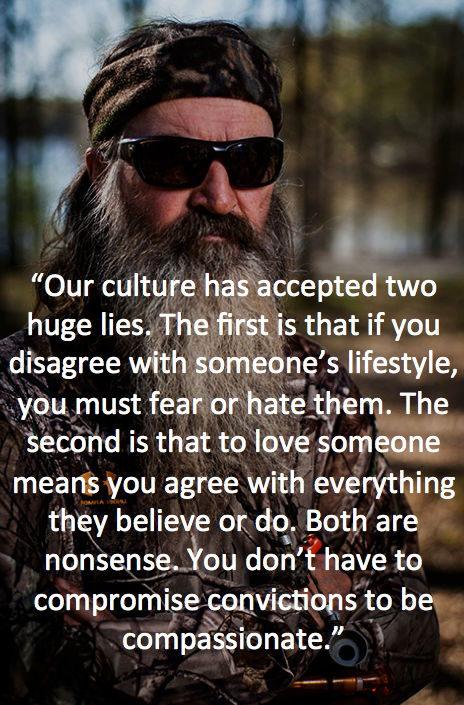Compassion?
Sounds good on paper, but there's one thing that gets forgotten. You do have to actually be compassionate to be "compassionate". The definition of compassionate is a deep feeling of sympathy and sorrow for another.
Synonyms of compassionate are commiserate, mercy, tenderness, clemency. Look up the definitions of these words. How many that share a trope like this one actually express compassion?
90%?
75%?
50%?
25%?
10%?
5%?
1%?
Based on my experience not many are actually compassionate, that's saddens me because it takes a great message and turns it into an ugly platitude.
So maybe there are 3 huge lies our culture has accepted, the 3rd would be that our culture has redefined being compassionate into some kind of caricature of it's true meaning, and have actually redefined it as compassion's antonyms.
Our culture, including the Christian culture, loves to speak crass while pointing out other people's shortcomings with vitriol, usually while ignoring or excusing our own shortcomings that we have decided are not as bad as the other man's, and then we call that compassion.
Maybe we are the "other man", and our shortcomings are worse, maybe we should deal with our own shortcomings before being our culture's definition of "compassionate" towards others.
And maybe we should just silence our inane words of judgment of others and actually be Christ-like and just look upon them and be moved with compassion (Matthew 9:36, 14:14, Mark 6:34.
Synonyms of compassionate are commiserate, mercy, tenderness, clemency. Look up the definitions of these words. How many that share a trope like this one actually express compassion?
90%?
75%?
50%?
25%?
10%?
5%?
1%?
Based on my experience not many are actually compassionate, that's saddens me because it takes a great message and turns it into an ugly platitude.
So maybe there are 3 huge lies our culture has accepted, the 3rd would be that our culture has redefined being compassionate into some kind of caricature of it's true meaning, and have actually redefined it as compassion's antonyms.
Our culture, including the Christian culture, loves to speak crass while pointing out other people's shortcomings with vitriol, usually while ignoring or excusing our own shortcomings that we have decided are not as bad as the other man's, and then we call that compassion.
Maybe we are the "other man", and our shortcomings are worse, maybe we should deal with our own shortcomings before being our culture's definition of "compassionate" towards others.
And maybe we should just silence our inane words of judgment of others and actually be Christ-like and just look upon them and be moved with compassion (Matthew 9:36, 14:14, Mark 6:34.




Comments